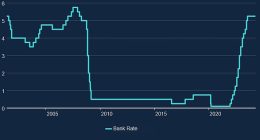IF YOU use Venmo or Zelle and are a victim of theft, then getting your money back could be an uphill battle.
By law, banks in the United States are required to refund any unauthorized transactions at a customer’s request.
This is known as Regulation E and was passed by the Federal Reserve Board (FRB) in 1978.
Specifically, this protects “all persons, including offices of foreign financial institutions in the United States, that offer EFT services to residents of any state,” according to the FRB.
In 2020, the Consumer Financial Protection Bureau also noted that this includes peer-to-peer payments through apps like Zelle and Venmo.
However, now many customers who have fallen victim to financial scams are finding that their banks are denying their requests for a refund.
In one instance, a man named Chuck Ruoff lost $3,450 through Zelle to a SIM swap attacker.
And when he asked his banking institute, Bank of America, for a refund, they told him that the transaction did not appear to be unauthorized, per Android Police.
Only after the New York Times did an expose on the story, did the bank get proactive and give him a refund.
Ruoff’s story is shared by many frustrated customers who have been left scrambling to get back their stolen funds.
Most read in Tech
Why is this happening?
Many banks argue that the shouldn’t have to refund customers who are the victims of scammers.
For starters, “Regulation E was never intended for instant money movement products,” Peter Tapling, a payments consultant told the NYT.
He added that this new update in guidelines has “caused a lot of angst and confusion for banks.”
As such, many banks are refusing to give customers back their money – even after they provide proof they were scammed.
What’s more, banks are rarely providing their customers with explanations for their decisions.
However, because this is essentially illegal, most banks end up caving and giving customers back their money – not without a fight, though.
In the instances where people are scammed by bad actors – who often pose as banking officials – banks usually refuse to make refunds.
Banks are arguing that because the person made the transaction themselves, they can’t be “unauthorized” as outlined in Regulation E.


This reasoning, however, is getting the attention of government representatives, who are criticizing big banks and demanding that they bear the responsibility.
“Reports of widespread fraud harming consumers on Zelle are deeply concerning, especially as its parent company and the big banks that own it fails to take responsibility,” Senator Elizabeth Warren (D-Massachusetts), said.










